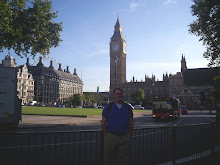However, the book also tells an unreflected story. There are constant turns in the action as Charlie befriends the Pakistani dictator Zia and actively supports the fundamentalist dictatorship the hung Zulifkar Bhutto. At no point is the wisdom of being entangled with such a reagime explored; which is unfortunate. To maintain the support of the Pakistani regime, and Pakistan's intelligence service, meant turning a blind eye, or outright lying, about Pakistan's human rights record and its efforts to build an atomic bomb. This decision to support or at least not object help explain why Pakistan continues to bedevil our foreign policy.
The role of CIA covert operations is also a subject worthy of reflection but does does not receive the attention it deserves. Avrakotos cut his teeth helping to liaison with the junta of colonels in Greece. This junta curtailed civil liberties and sent 3,000 Greek citizens to prison to be tortured. Yet the wisdom of the CIA supporting the junta or being involved in a wide range of assassinations and coups is never discussed. However, the problems we face in places like Iran are due in part to the actions of CIA. The sad fact is the people of other countries are often more aware of the result of our covert actions than we Americans are; yet we continue to wonder why they hate us.
There some interesting tidbits in the book. For example, Oliver North wanted to get in of the Afghan show by raising up a group of Soviet defectors to fight for the Afghanis. This is the type of thinking that made Iran-Contra the grand success that it was. It was also interesting to read about the Soviet Strategy. The Soviet strategy was to use 120,000 soldiers to control the cities and major transportation routes but not contest the the countryside. Yet the Soviet army could not accomplish this task. It makes me wonder what the U.S. is planning on doing with 30,000 soldiers.
To be fair I am arguing from hindsight but the author also claims to writing from hindsight. He says that "this incredible tale is the key to understanding two of the most important events of our time-the sudden collapse of the Soviet Union and the rise of militant Islam." However there are really no lessons gleamed from this "incredible tale." Instead the tale is as blinded by the action as Charlie Wilson was; the U.S. is always good, everything we do is with the best of motives, our allies always share our values and goals, etc. Instead of being a work of history that explains our times; this book is an adventure story that should be accurately titled Charlie Wilson's War as Told from the Perspective of Charlie Wilson.
